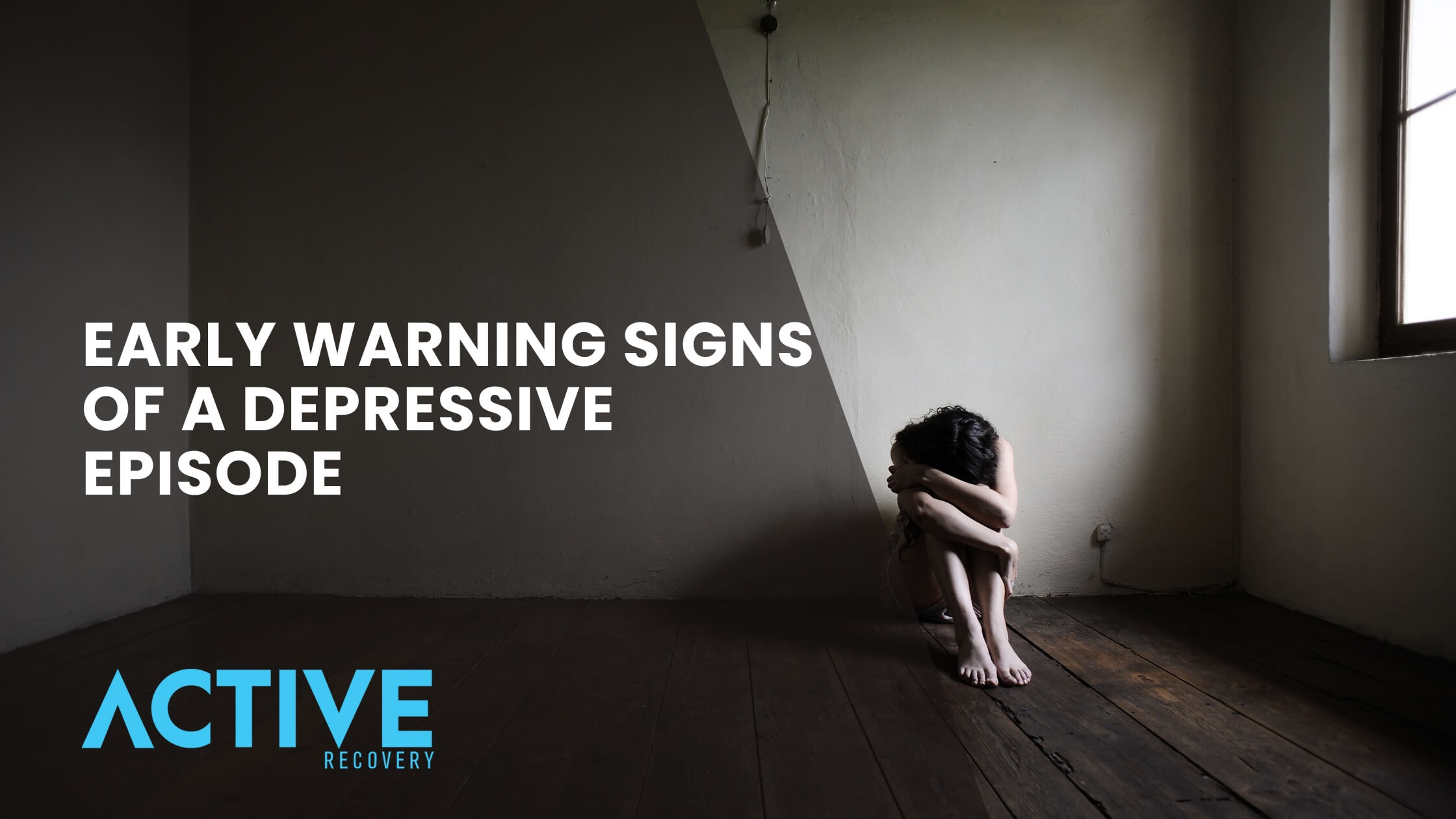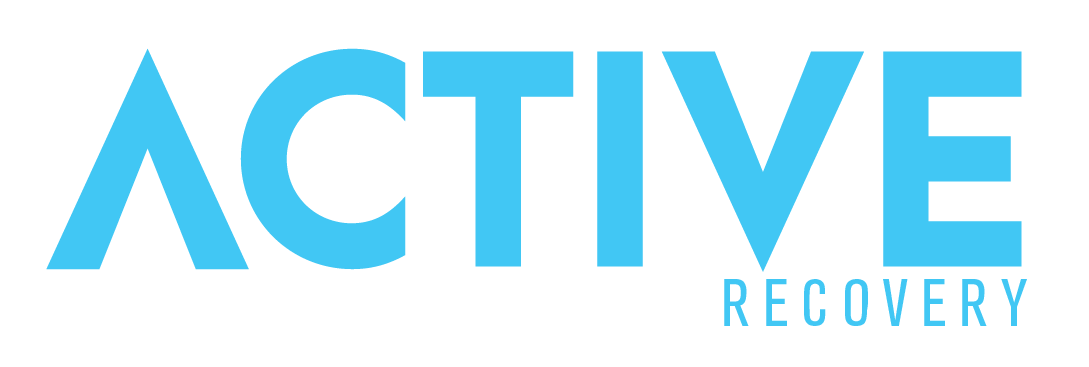Last Updated on December 11, 2023


Recovering from your addiction is full of difficulties and challenges, and depression can certainly be one of them. There are days when things may feel so overwhelming that the threat of relapse is more profound.
This is why recognizing early warning signs of a depressive episode is important. Your mental health impacts your recovery and effectively managing depressive symptoms is the key to reclaiming your life. Depression is a highly treatable condition but requires attention and professional care.
In this article, we're here to offer guidance on how to identify and handle depressive episodes, particularly if you're just out of rehab. As a leader in the sober companion community, Active Recovery also provides sober monitoring services for people having a hard time maintaining sobriety. Continue reading to learn more.
A depressive episode is a feeling of depression that lasts for at least two weeks. This is not just a normal change in mood, and is often considered a serious health condition.
During such episodes, you may experience profound sadness, a loss of interest in previously enjoyed activities, fatigue, feelings of worthlessness, changes in appetite (eating more or less than usual), or even thoughts of death.
For those recovering from alcohol or drug use, this is especially important. Around 40 to 60% of substance abusers start using again, and struggling with depression can be a big reason why.
Individuals with a history of depression are also susceptible to Seasonal Affective Disorder, or SAD. It's a type of depression caused by the changes in seasons. SAD affects more people during the fall and winter seasons when it's cold and dark.
Depression can affect people of all ages and backgrounds. However, the good news is that there are effective approaches to help individuals improve their emotional well-being.
The following are symptoms of depression you should look out for:
Changes in your sleep behaviors, or your circadian rhythm, can be a warning sign of a depressive episode.
If you struggle to fall asleep or consistently stay asleep, it might be more than just an occasional bad night. Experiencing difficulties falling asleep, waking up too early, or being unable to return to sleep are common concerns regarding depression.
If you're dealing with sleep apnea, where your breathing stops while you sleep, you'll likely feel tired during the day. Sleep apnea has also been linked to depression, so seeing a doctor or sleep specialist if there's a suspected sleeping disorder is advised.
If you're in recovery, it's important not to overlook these sleep disruptions, as they can be indicative of underlying mental health issues. It's important to talk to a recovery consultant so you can get the right help.
Changes in appetite and weight are common indicators of an approaching depressive episode.
For many people, these changes manifest consistently with each episode, providing insight into how depression affects them personally.
Approximately half of individuals with Major Depressive Disorder (MDD) experience reduced appetite when depressed, with about a third experiencing weight loss. Alternatively, a third of individuals with MDD may eat more, and approximately one in five may gain weight during such episodes.
These patterns can be key indicators of a depressive episode.
If you notice these changes in yourself or someone else, it's a good idea to talk to a recovery coach for guidance and support.
Losing interest in things you used to love is a key sign of a depressive episode, and it holds particular importance for those in the process of recovering from addiction.
It's normal to feel less excited about hobbies or socializing when you're busy, having relationship problems, or just in a temporary slump. However, if you consistently find yourself indifferent to most things and people over an extended period, it may mean there's more at play than a temporary rough patch.
When you no longer find happiness or pleasure in your interests, it can lead to isolation, potentially complicating recovery and increasing the risk of relapse.
Persistent feelings of sadness are often a major sign of depression.
This isn't just feeling down for a day or two — it's a deep, ongoing sadness that can leave you feeling empty and disinterested in life. This mood can persist for the majority of the day, almost every day, for up to two years or longer.
People struggling with persistent depressive disorder (PDD) often have low self-esteem, a sense of hopelessness, and a self-perception of failure. These emotions can significantly impede relationships, work, and daily functioning.
While PDD may not be as severe as major depression, it can certainly be mild, moderate, or severe in its impact.
Low energy is also one of the most common signs that a depressive episode may be incoming. This goes beyond the ordinary tiredness one might feel after a long day.
People experiencing this symptom often feel drained, even if they haven't done much physically. This kind of fatigue can make it hard to do everyday tasks and can feel extremely overwhelming. It's like your body's battery is always running low, no matter how much you rest.
This persistent lack of energy is a key symptom to be vigilant about when it comes to depression.
Irritability or restlessness can be a telltale indicator of an impending depressive episode, particularly for someone in addiction recovery. It often feels like a constant state of agitation or unease.
For recovering addicts, this can be especially challenging, as it may increase the temptation to relapse as a means of coping.
Such irritability can strain relationships and disrupt daily routines, making it difficult to concentrate or find peace.
Recognizing and addressing this symptom is crucial for maintaining sobriety and mental wellness.
Withdrawal from social activities is a significant indicator of an approaching depressive episode, especially in recovering addicts.
This withdrawal entails a consistent avoidance of social interactions and activities that were previously enjoyed. It can lead to increased isolation, which in turn may exacerbate feelings of loneliness and sadness, potentially impacting recovery progress.
Feelings of worthlessness associated with depression go beyond occasional self-doubt. It's an overwhelming sense of inadequacy that pervades all aspects of life.
For someone recovering from addiction, these feelings can be particularly intense, often intensifying the battle for sobriety.
They can erode self-esteem and fuel negative thoughts, making it challenging to recognize one's value and contributions.
Thoughts of death or suicide are serious and alarming signs of a worsening depressive episode. This symptom goes beyond fleeting thoughts of mortality — it involves persistent contemplation of death or suicidal ideation.
In recovering addicts, these thoughts can be particularly distressing, sometimes seen as a way to escape the challenges of sobriety and emotional pain.
It's crucial to understand that these thoughts signify a critical need for immediate mental health support. If you or someone you know is experiencing such thoughts, it's essential to seek professional help right away.
Remember, these thoughts are a symptom of an illness and can be treated with the right support and care.
Active Recovery stands as a beacon of support for those navigating the challenging journey of addiction recovery and mental health management.
We offer a range of services, including personalized counseling, group therapy, and tailored recovery plans to make sure we meet your unique needs. Our approach prioritizes accessibility, making vital mental health resources readily available to those in recovery.
By focusing on continuous care, we provide ongoing support critical for maintaining sobriety and managing depressive episodes effectively.
Ready to take the next step? Reach out to Active Recovery and embrace a path of long lasting recovery and well-being.

© 2023, Active Recovery Companions